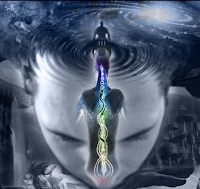 I have long been wanting to write about this monster called ego, that stands between human growth and stagnation. I partly touched upon this in my "change" post, but wanted to unwrap it in a harsher way.
I have long been wanting to write about this monster called ego, that stands between human growth and stagnation. I partly touched upon this in my "change" post, but wanted to unwrap it in a harsher way.Facebook fell prey to hackers recently, and claimed that it was a browser issue. I do not deny the genuineness of the claim, but I was very surprised to see stereotypical messages posted by my friends working in Facebook - "There have been inaccurate reports of Facebook accounts being hacked. This is not true, and no accounts have been compromised." And this was at a time when there were a dozen newspapers reporting about many thousands of Facebook accounts being hacked worldwide.
There was a post I wrote a couple of years back, when Mr. Chidambaram, as Home Minister claimed that India is a completely safe country, safer than many other countries of the world. And this was at a time when India was bombarded with bomb attacks every two weeks. How does being safer than many countries qualify India to be a safe country?
I don't deny that a company or a country should talk responsibly, but is this just responsibility? Yes, we are used to hearing the CEO say "We are looking forward to the strongest results in our history", just a week before the company would fall overnight. Yes, we are used to hearing the Central Bank say "Our economics are fundamentally strong and rationally sound", just a day before the stock market would witness its sharpest fall. But the letdown is, we are so used to these cover-ups that we've internalized this vice within ourselves too. Let us take this head to head.
There was an article recently that slammed the idea of giving Bharat Ratna to Sachin Tendulkar. The rationale was that any country's highest award is supposed to be given to someone who has made a difference to the lives of people. I do not want to talk here about the article itself, but about a comment that disagreed with the author, noting that India is a young nation and that we need to pat ourselves even for small achievements. I didn't quite understand the logic here because, I thought we were one of the oldest nations, claiming to have built marvelous cities when the rest of the world didn't know what civilization was.
Why talk about unrelated people? Try criticizing a good friend of yours, you will know. And when you lie down on bed that night after being surprised by the way your friend reacted, just introspect and find out how you had behaved all your life for any criticism you had faced.
Is this just normal human behaviour? Or is this self-righteousness? Or is this pride? Or is this ego? If even after tens of thousands of years of existence, mankind has not got egos out of their way, I'm afraid this can be called normal. If we can't even conquer ourselves, what are we trying to prove with our existence? If shame is the first step towards accomplishment, it's high time we took shame on ourselves and started accomplishing.
Let us stop covering up, let us start uncovering the beauties that exist within this wonderful creation called mankind!























